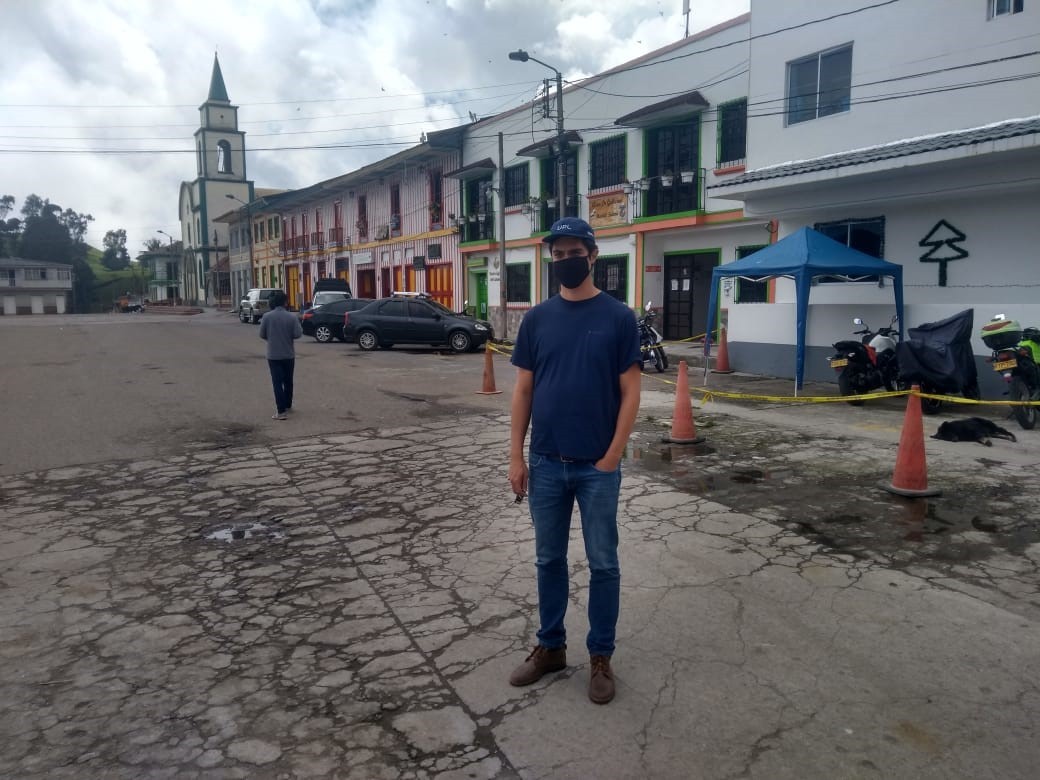Colombia coffee research goes on, despite pandemic obstacles for graduate student

For 10 years I have tried to visit the International Center for Tropical Agriculture (CIAT) in Palmira, Colombia, yet it still eludes me. Who would’ve thought a global pandemic would be the latest obstacle to my desire?
Early attempts during my undergraduate years at the University of Caldas in Colombia—as an agronomy student, visiting CIAT ranks highly in the list of field trips—were truncated by a myriad of reasons. First, the field trip for soil conservation and management was cancelled due to a nation-wide strike of all public universities in protest to funding cuts. I then missed the second chance, when my colleagues visited CIAT for the class on yearly crops because I was participating in an exchange program in Brazil.
After getting my undergraduate degree, a fresh opportunity arose when my father was invited to CIAT’s 50th anniversary celebration. This might be the right time to mention another reason my family and I have such esteem for CIAT: my father’s first job was at CIAT, where he was hired as a trainee fresh out of the same agronomy program where I received my degree. For six years he worked at CIAT, ultimately earning a fellowship to obtain a Master’s degree in Tropical Agriculture at the University of Reading. Over the years my father has never forgotten that time with several anecdotes at hand about how titans of the agronomy field would outwork anyone at CIAT as they conducted experiments under the unforgiving sun of Colombia’s sugar cane region. Well, I missed the meeting of my father and several of the titans by a couple of days, because I was finishing a semester in the U.S.
My latest attempt was made possible through the Global Food Security Fellowship from the College of ACES, where I am a graduate student in the Department of Agricultural and Consumer Economics (ACE). The proposal, advised by ACE professor Sandy Dall’Erba, is titled “Crop Shifting Dynamics in Colombia’s Low Marginal Coffee Region.” I got really close to visiting; I was expected at CIAT by June 2020 and already made living arrangements in Cali, Colombia. The pandemic cut my plans short as contagion in Colombia really picked up in May and CIAT’s campus was closed. It remains so until now.
I should clarify that the current pandemic, although an obstacle to a physical visit, is by no means a foreclosure of the project. First, I want to mention the support from my mentors at CIAT, Eric Rahn and Christian Bunn. I have benefitted greatly from their knowledge on data availability and on environmental research in Colombia. Their mentorship is not happenstance: their work on coffee in Colombia is widely cited in my research paper on the effects of climate variability on Colombia’s coffee productivity and is the backbone of our new approach to understanding crop shifting dynamics in the lower marginal coffee region. Collaborating with them has been an enriching experience, both professionally and personally.
Our work started last year during the summer. As a silver lining, the pandemic has freed up extra time from our agendas so we have made more progress than anticipated. We have compiled a database of upwards of one million observations at the plot level from coffee growers across Colombia. Building on the 2015 Agricultural Census of Colombia, which also provides information on the farmers, their families and their farms, we have added weather and soil data – which CIAT has a wealth of – so we can observe upwards of 700 variables that could potentially explain the crop shifting decisions of farmers at the shorter end of the climate impact. Our current work is a descriptive analysis of this dataset as we look to answer questions such as: to what crops are coffee farmers moving as they see their yields decline in the face of worse weather? Are certain types of farmers able to better withstand the impact of climate change?
Ultimately, there is still a chance (and my great hope) I’ll get to visit CIAT. Maybe they’ll open their campus in April. If so, the picture I will take will hang proudly next to the picture I took with Juan Valdez in 2015.